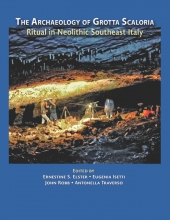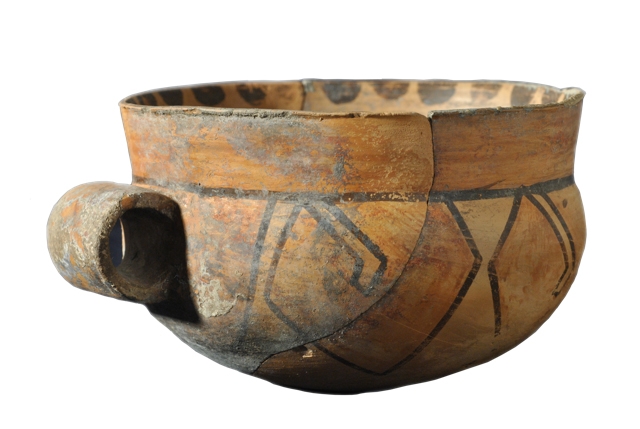The Archaeology of Grotta Scaloria: Ritual in Neolithic Southeast Italy

Backlist
Series: Monumenta Archaeologica 38ISBN: 978-938770-07-4
Publication Date: Apr 2016
Price: Hb $89, eBook $70
Order this book here!
- Print: Order from our distributor
- Electronic: Kindle eBook
- Open Access: PDF
Return to catalog
Ernestine S. Elster, Eugenia Isetti, John Robb, and Antonella Traverso
“The excavation was never fully published. This volume is the product of efforts to correct that fact. And it is much more. The team, led admirably by Dr. Ernestine S. Elster of UCLA, pulled together (not without strain) the “legacy data” and applied extensive analyses, including new scientific methods.”
— Barbara Voytek, Current Anthropology, 2017
Scaloria Cave, Grotta Scaloria, is in Apulia, where the Tavoliere Plain rises to meet the Gargano peninsula. Hundreds of villages were located there during the Neolithic period, the villagi trincerati first identified from aerial photographs taken by the British RAF during WW II. Certainly some of these Neolithic villagers of the Tavoliere visited Scaloria Cave, for refuge from the elements, and for the mysterious rituals held in both the Lower and Upper Chambers. 
Grotta Scaloria was first discovered and explored in 1931, excavated briefly in 1967, and extensively from 1978–80 by a joint UCLA-University of Genoa team, but never fully published. The Save Scaloria Project was organized to locate this legacy data, and to enhance that information by application of the newest methods of archaeological and scientific analysis.
Finally, this important site is published, in one comprehensive volume that gathers together the archaeological data from the Upper and Lower Chambers of Scaloria Cave, which indicate intense ritual and quotidian use during the Neolithic (ca 5600-5300 BC). The Grotta Scaloria project is also important as historiography, since it illustrates a changing trajectory of research spanning three generations of European and American archaeology.

Recipient of the Jo Anne Stolaroff Cotsen Prize


